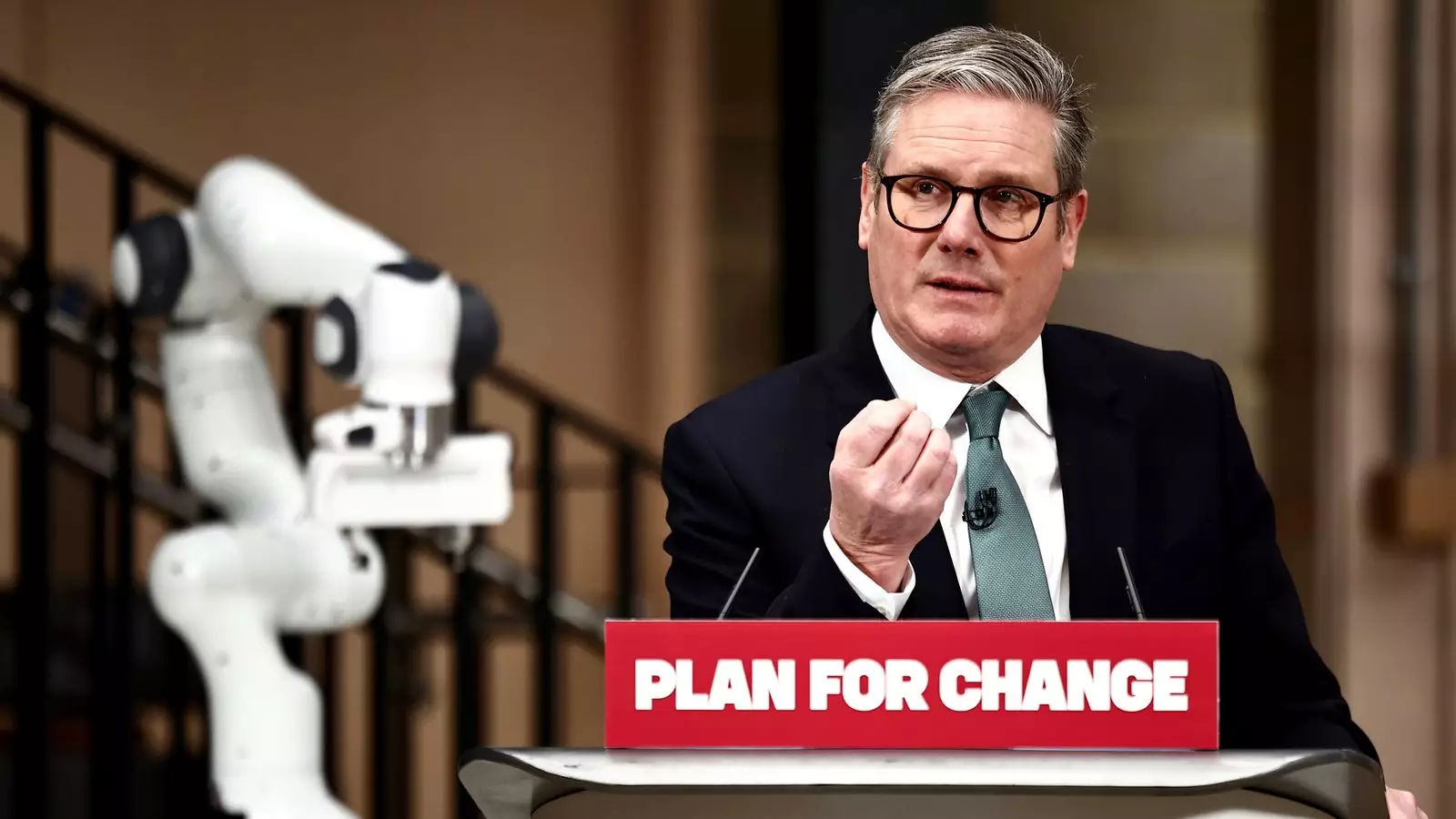The current economic landscape of the United Kingdom is characterized by deep-rooted challenges and an urgent call for effective management. Sir Keir Starmer, the leader of the Labour Party, has posited that government spending cuts are essential as financial markets exhibit severe volatility. In a conversation with Sky News’ political editor Beth Rigby, he underscored the government’s primary objective: achieving economic growth. However, the conditions under which this growth is being pursued raise questions about the feasibility and potential consequences of such policies.
Recent data reveals rising government borrowing costs, with the 30-year gilt yield climbing to 5.47%, a rate not observed since the late 1990s. Furthermore, the 10-year borrowing cost has also escalated to 4.86%, echoing levels seen during the calamity of the 2008 financial crisis. These metrics are alarming, as they suggest that the government is entering a phase where maintaining fiscal discipline could become increasingly challenging. The rising costs of borrowing not only impact government finances but can also lead to broader economic distress, particularly impacting ordinary citizens struggling with mortgage payments and uncertainty in housing market conditions.
As the financial landscape grows dire, the British pound has plummeted to an unprecedented low, hovering around $1.21. This decline, often indicative of dwindling investor confidence, complicates the narrative that the government is effectively managing the economy. Furthermore, the prospect of increased mortgage rates renders the situation even more precarious for homeowners and potential buyers, indicating a ripple effect that could stifle economic recovery efforts.
In light of this precarious financial situation, Starmer mentioned that the Treasury will be “ruthless” in executing spending cuts. Such a hunt for efficiency often leads to austerity measures that can disproportionately affect the most vulnerable segments of society. The upcoming spending review, which may necessitate government departments to achieve savings of 5% of their budgets, signals a shift towards conservative fiscal policies reminiscent of previous austerity measures that have already come under scrutiny for exacerbating social inequality.
Starmer asserted that his government is committed to fiscal rules, emphasizing the importance of re-establishing economic stability. Yet this commitment raises critical questions: Is the current fiscal discipline the right approach? Are there alternative strategies that might better address the pressing challenges facing the UK economy? The emphasis on stringent spending cuts could inhibit public investment and growth opportunities, starving essential services and infrastructure development.
The narrative of “inheriting a mess” from the Conservative government frames the Labour Party’s current position as one of reform and recovery. While acknowledging past government failures is important, it also places a heavy burden on Starmer’s administration to demonstrate tangible changes rather than simply invoking the failures of predecessors. The vagueness surrounding the future of Rachel Reeves as Chancellor indicates a potential underlying instability within the party’s leadership, which could further undermine confidence in economic governance.
In previous high-pressure scenarios, effective leadership is often dictated by the ability to navigate adversity with clarity and conviction. Without a clear endorsement for Reeves, the perception of governance may falter, allowing opposition voices—such as that of Conservative leader Kemi Badenoch—to amplify doubt regarding Labour’s economic competencies. Such perceptions can hinder public confidence and diminish trust in government institutions crucial for facilitating economic recovery.
As the UK grapples with significant market turbulence and calls for stringent fiscal policies, it faces a unique and pressing challenge: how to balance necessary austerity measures with the urgency for economic growth. The political and economic environment requires not merely reactionary measures but rather transformative policies grounded in inclusivity and sustainable growth.
Starmer’s commitment to fiscal prudence must be matched by innovative economic strategies that reach beyond traditional measures. Stakeholders, including policymakers and citizens alike, must engage collaboratively to cultivate a resilient economic future that prioritizes stability while ensuring equitable growth opportunities for all demographics.


Leave a Reply